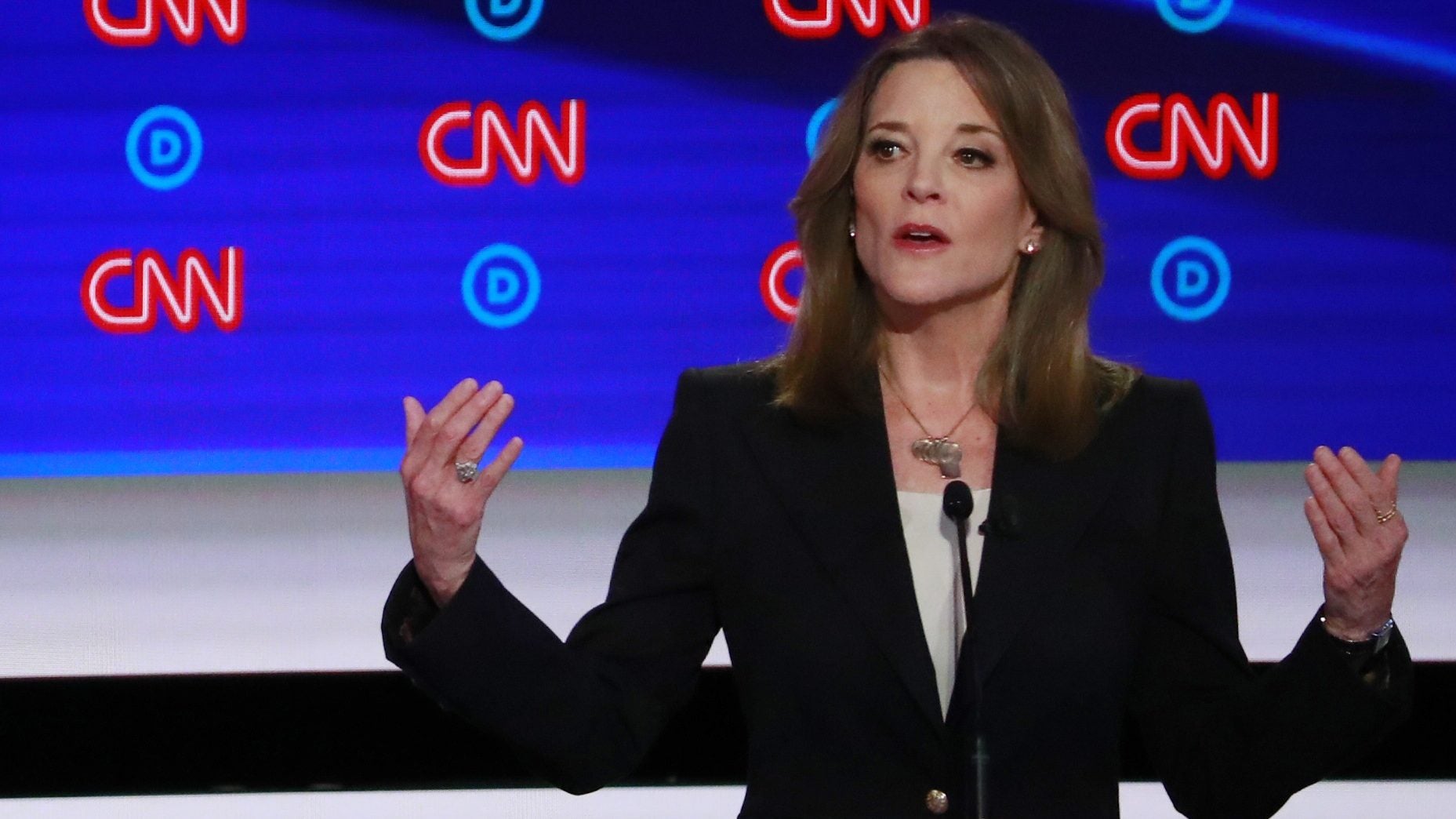Marianne Williamson has been talking about reparations for 20 years
Marianne Williamson, the bestselling author, activist, and spiritual leader who is running to be the democratic nominee for president in 2020, got big applause when she defended her plan to give reparations to the tune of $200 to 500 billion to the descendants of African-American slaves at Tuesday night’s debates.


Marianne Williamson, the bestselling author, activist, and spiritual leader who is running to be the democratic nominee for president in 2020, got big applause when she defended her plan to give reparations to the tune of $200 to 500 billion to the descendants of African-American slaves at Tuesday night’s debates.
She launched her answer by correcting CNN correspondent Don Lemon’s phrasing of the question, asserting that the billions would not be “financial assistance,” but rather “a debt that is owed.”
She went on:
“It is time for us to simply realize that this country will not heal. All that a country is is a collection of people. People heal when there’s deep truth telling. We need to recognize when it comes to the economic gap between blacks and whites in America, it does come from a great injustice that has never been dealt with. That great injustice has had to do with the fact that there was 250 years of slavery, followed by another 100 years of domestic terrorism.”
This topic has had a home on Williamson’s podiums, pulpits, and pages for decades. In her 2000 book, Healing the Soul of America: Reclaiming our Voices as Spiritual Citizens, she wrote:
“An apology is the yin we need, and serious restitution is the yang. When African Americans say the word ‘reparations,’ you’d think they had suggested something completely outrageous. But the general concept is legitimate … Nothing short of a massive investment in America’s African-American poor—the true legacy of slavery—is a responsible sign of America’s willingness to heal itself racially.”
Williamson has also discussed the importance of atonement and apology when it comes to America’s racist history. A 2001 Detroit Metro Times cover story describes how Williamson, then the leader of a non-denominational church in Detroit, “asked all the African-Americans in the church to stand up. Then she invited the white people near them to take their hands, look them in the eye, and apologize for the suffering and humiliation that the nation’s racism had caused them and their people.” The apologies got mixed reactions, as did her more recent attempts.
Although Williamson has made reparations one of her few clear talking points when it comes to policy, she came across as surprisingly unsupportive of H.R. 40, the bill to establish a commission to study and consider a national apology and a plan for reparations.
Lemon specifically phrased his question to ask Williamson what qualified her—rather than a commission—to calculate the $200 to $500 billion figure that she frequently references, and although her answer communicated her serious regard for reparations, it came across as dismissive of the activists and politicians who have been fighting for a commission in Washington.
“We don’t need another commission to look at evidence,” she said, and added that her math was derived from the 40 acres and a mule that slaves never received, and that the $200 to 500 billion sum was “politically feasible.”